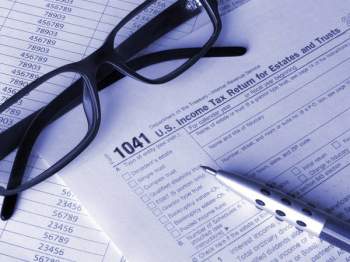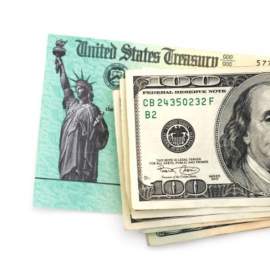
Tax Preparation Class Course Certificate Programs

How to Become a Tax Professional:
A certified public accountant is not the only form of tax professional in the United States. In fact, it is quite easy to become a tax professional. If you want to facilitate other people’s tax filings, simply follow these steps to secure your Tax Preparation Certificate:
Steps to Becoming a Tax Professional
1. The first step to becoming a tax professional is to obtain a High School Diploma. Those working with income taxes will need at least a high school education in mathematics. That being said, the majority of large firms will require candidates to attain a bachelor’s degree or a post-secondary education of some sort with related experience in tax law. The bulk of advanced entry-level tax professional positions, will desire prospective employees to hold a bachelor’s degree in accounting, mathematics or business. If you wish to secure a tax preparer job with the government you will need to earn a bachelor’s degree in accounting, mathematics or business.
2. The next step to becoming a tax professional is to enroll-in and subsequently complete a tax preparation course. In addition to securing an accounting degree from an accredited college or university, you can get the training you need to become a tax preparer from a number of private tax programs, vocational schools or community colleges that offer specific tax-related courses.
3. After securing further education, you should apply to professional tax service companies to become a tax professional. These companies will require you to pass special examinations; the purpose of these tests is to affirm your understanding of tax law. Frequently, these tests will circumvent requirements for tax preparation courses or similar college-level areas of study.
4. After you have passed your company’s tax examination, you must register with the Internal Revenue Service and the mandatory state organizations or agencies. The Internal Revenue Service, as stated above, requires tax professionals to register for preparer tax identification numbers.
5. Further testing will be implemented following registration. Subsequent testing is merely administered to refresh your knowledge of tax law.
The steps to becoming a tax professional are fairly routine; anyone can become a tax professional assuming they have received the necessary education. To become a tax preparer, it is suggested that you first—before enrolling in classes or programs—practice by filing your own return. Understanding your return will aid you when you enter formal schooling. To facilitate your filing, you should look into purchasing tax preparation software.
Tax Preparation Class Course Certificate Programs for Tax Professionals
What is a Tax Professional?
A tax professional (also referred to as a tax advisor or tax planner) is a financial expert who is specially trained in the field of tax law. In the United States, tax professionals are regulated—but never licensed—by the Internal Revenue Service (IRS) of the United States Department of Treasury. As of 2010, the Internal Revenue Service did not require certification for tax professionals. As of 2011; however, the IRS was attempting to amend this rule to eventually require formal registration for all paid federal tax professionals. These proposed rules would require tax professionals to pass a national tax examination and satisfy subsequent education requirements.
New IRS Tax Preparation Certificate Programs:
All tax professionals (including those exempt above) are required to possess a practitioner’s tax identification number. To receive this license, beginning in 2012, all tax professionals (other than a CPA, enrolled agent or tax attorney) are required to take and pass a competency examination to be regarded as a registered tax professional. All tax professionals (including those exempt above) are required to possess a practitioner’s tax identification number. Those already in possession of the practitioner’s tax identification number have until December 31st of 2013 to pass the newly-mandated competency test.
In addition to this examination, a newly-minted continuing education requirement of 15 hours per year will be implemented on all tax professionals except CPAs, enrolled agents and tax attorneys. The Internal Revenue Service, who has yet to decide when this new rule will be implemented, has indicated that the amendment will apply to all federal tax returns, including payroll taxes and income taxes.



















